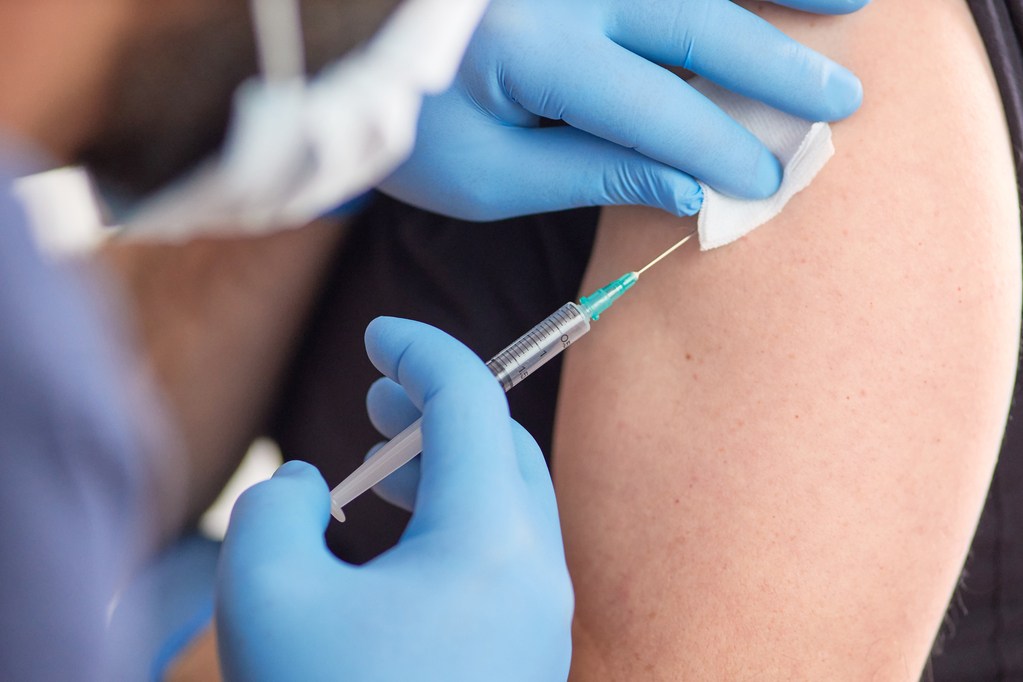Vaccination remains one of the best protective measures against COVID-19, the European Medicines Agency (EMA) and the European Centre for Disease Prevention and Control (ECDC) announced in a joint statement last week.
Recommendations for vaccination are in place in all Member States and roll-out of vaccination is ongoing. The two EU expert agencies urge EU citizens to get vaccinated and to adhere to the recommended number of doses. This is particularly important taking into account the spread of the Delta variant of the virus and the need to protect citizens, especially those at risk of severe COVID-19.
What is the current COVID-19 situation in the EU?
According to the agencies, the Delta variant is a variant of concern that is spreading fast in Europe and may seriously hamper efforts to control the pandemic. Evidence suggests it is 40% to 60% more transmissible than the earlier Alpha variant which was discovered in the UK and was the first major variant of concern in the EU.
In addition, the Delta variant may be associated with higher risk of hospitalisation.
ECDC estimates that by the end of August the Delta variant will represent 90 percent of all SARS-CoV-2 viruses circulating in the EU. This makes it essential for countries to speed up vaccination programmes, including delivery of second doses where recommended, and to close the immunity gaps and opportunities for further emergence of variants, as soon as possible.
What is needed for protection against the Delta variant?
The two agencies stressed that adherence to the recommended vaccination course, in line with the product information, is vital to benefit from the highest level of protection against the virus. As the Delta variant increasingly spreads, the importance of completing the recommended courses is underlined.
Preliminary evidence suggests that both doses of a 2-dose COVID-19 vaccine like Pfizer-BioNTech, Moderna and AstraZeneca are needed to provide adequate protection against the Delta variant.
The risk of severe disease and mortality caused by COVID-19 is greater for older age groups and those with other underlying conditions, emphasising their need for completing the recommended vaccination courses. However, there are still 10 EU/EEA countries where nearly 30% or more of individuals older than 80 years have not yet completed the recommended vaccination course.
Similarly, to protect frail and elderly individuals in closed settings, such as hospitalised patients or residents in long-term care facilities, further work is needed in some countries to increase vaccine uptake among healthcare workers and staff of such institutions.
Can a different vaccine be used for the second dose?
Experts responsible for the vaccination programmes in over half of Member States have decided, with a view to their national situations, to use different vaccines for the second dose from the ones used for the first dose. For example, in some countries people may be offered a second dose of an mRNA vaccine such as Pfizer-BioNTech or Moderna after a first dose of the adenoviral vector vaccine, AstraZeneca.
A heterologous vaccination strategy (sometimes referred to as ‘mix and match’) has historically been applied for some other vaccines. There are good scientific grounds to expect this strategy to be safe and effective when applied to vaccination against COVID-19. The use of a heterologous vaccination strategy may allow populations to be protected more quickly and make better use of available vaccine supplies.
However, currently EMA and ECDC are not in a position to make any definitive recommendations on use of different COVID-19 vaccines for the two doses. Nonetheless, preliminary results from studies in some countries suggest a satisfactory immune response and no safety concerns. More data are awaited shortly, and EMA will continue to review these as they become available.
Will a booster dose be needed after completing the recommended vaccination course?
It is currently too early to confirm if and when a booster dose for COVID-19 vaccines will be needed, because there is not yet enough data from vaccination campaigns and ongoing studies to understand how long protection from the vaccines will last, also considering the spread of variants.
However, in case booster doses may become needed, EMA and ECDC are already collaborating with one another and the national immunisation technical advisory groups, who are national experts advising on vaccination programmes coordinated by ECDC. Any new evidence that becomes available on this topic will be rapidly reviewed.
Real world effectiveness data from Europe and other parts of the world, are of particular interest to supplement data from clinical trials investigating booster doses.
EMA is also engaging with vaccine developers to coordinate submission of these data. This should ensure that the regulatory steps to enable the possibility of using a booster dose can be undertaken as soon as possible should it prove necessary.
Are other protective measures needed?
Other measures such as mask wearing and social distancing will need to be maintained at a level sufficient to contain community transmission of the Delta variant until more of the populations are fully vaccinated, in order to avoid a resurgence of cases with a possible increase in hospitalisations and deaths. Citizens should follow national advice to protect themselves and others.
The Brussels Times

